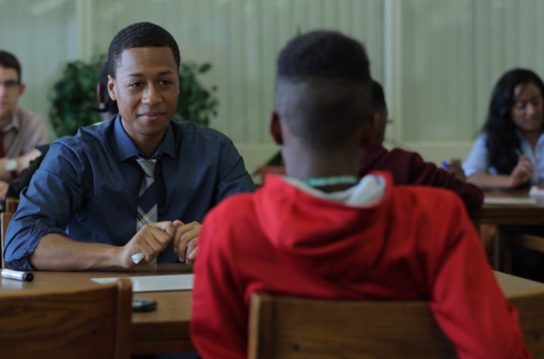Matching Students to Excellent Tutors
Research Finds Match Charter-Like Tutoring Programs Should Be Central Part of School, District Turnaround Efforts
“High-dosage” tutoring found more effective, less expensive than commonly touted reform efforts like reduced class size, extended school day
BOSTON – “High-dosage” tutoring of the kind pioneered at Match Education’s charter schools in Boston should be a central component of school and district turnaround efforts, schools and districts that adopt the model should be given the autonomy to customize the tutoring program to fit their own needs, and tutoring costs should be baked into school budgets so the program’s existence won’t depend upon the availability of outside funding, according to new research published by Pioneer Institute.
Matching Students to Excellent Tutors: How a Massachusetts Charter School Bridges Achievement Gaps
“Match-style tutoring is less expensive and has proven far more effective than widely accepted reforms such as reduced class size and extended school days,” said Cara Stillings Candal, author of “Match-ing Students with Excellent Tutors.”
Once the tutoring program was fully implemented in 2005, student achievement gains at Match Education’s charter schools skyrocketed. The United States Department of Education cited Match’s high school as one of the nation’s eight best charter schools for closing the achievement gap and both Newsweek and US News & World Report ranked it as one of the 100 best high schools in the country. A recent quasi-experimental analysis found that the academic gains from the Match Corps, as the tutors are known, are approximately equivalent to an additional year’s worth of instruction.
The model has been replicated in district and charter schools around the country and is a particularly effective turnaround strategy because it produces meaningful results in a minimal amount of time.
When the Lawrence, MA schools were placed in state receivership, state-appointed Receiver Jeffrey Riley hired Match Education to develop a math tutoring program for about 600 students. After one full year of implementation at two grade levels, those students have seen historic achievement gains.
Different areas must be given the freedom to adjust the model to fit their needs. In Lawrence, many of the tutors are local and some are career-changers who are older than average Match Corps members at the charter schools run directly by Match Education.
Match Education initially funded its tutoring program with the help of charitable donations, but quickly decided to integrate it into the school budget so its existence wouldn’t be dependent on access to outside funding.
The success of the Match Corps is based on the ability to get well-educated young people to dedicate a year to tutoring, fully integrating the program into the life of the school, the presence of a strong accountability system to ensure its effectiveness and strong relationships among teachers, tutors, students and their families. Every Match tutor calls the parents of the students he or she tutors at least once a week.
To make the program more appealing to elite graduates of the nation’s top colleges, Match provides housing options for its tutors and pays them a stipend ($14,300 for the 2013-2014 academic year). At its high school, for example, Match turned the top floor of its building into a dormitory; having tutors on site allowed every Match student to have at least two hours of tutoring daily.
Accountability is also built into the program. Tutors get weekly feedback and have weekly practice and planning time with Match teachers.
Through experience, Match discovered that one tutor for every two students was the most effective ratio for the program. Before the start of each school year, tutors receive two weeks of intensive training.
Cara Stillings Candal is director of research and curriculum at the Center for Better Schools/National Academy for Advanced Teacher Education. Previously, she was a high school teacher and research assistant professor at the Boston University School of Education. She is editor of the book Partnering for Progress: Boston University, The Chelsea Public Schools and Twenty Years of Urban Education Reform.
###
Pioneer Institute is an independent, non-partisan, privately funded research organization that seeks to improve the quality of life in Massachusetts through civic discourse and intellectually rigorous, data-driven public policy solutions based on free market principles, individual liberty and responsibility, and the ideal of effective, limited and accountable government.



